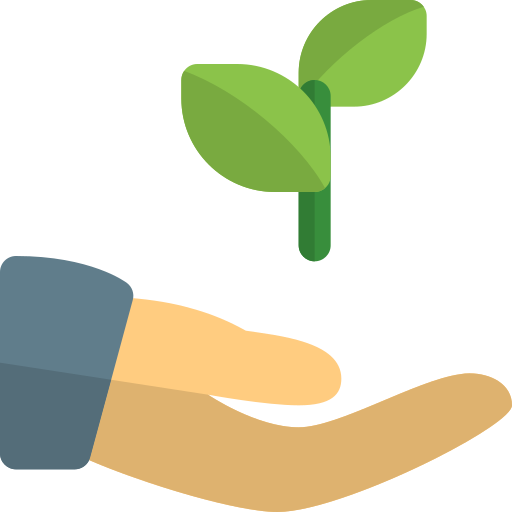Down Syndrome: Understanding the Characteristics
Down Syndrome Support & Care Services
Understanding the Characteristics
Down syndrome, also known as trisomy 21, is a genetic disorder caused by the presence of an extra chromosome 21. It is one of the most common chromosomal abnormalities and occurs in approximately 1 in every 700 births. People with Down syndrome have distinctive physical features, intellectual and developmental delays, and a variety of health issues.
Common Characteristics of Someone with Down Syndrome
Individuals with Down syndrome typically have a distinctive set of physical and developmental characteristics that are associated with the condition. While there is significant variation between individuals, some of the common characteristics of someone with Down syndrome include:
Delays in intellectual and developmental milestones: Individuals with Down syndrome often experience delays in reaching developmental milestones such as crawling, walking, and speaking. They may require additional support to develop these skills.
Low muscle tone: Hypotonia or low muscle tone is a common feature of Down syndrome. This can make it difficult for individuals to control their movements and can result in challenges with fine and gross motor skills.
Short stature: Individuals with Down syndrome tend to be shorter in height than the general population. This is often due to delayed growth and development.
An upward slant to the eyes: A characteristic of Down syndrome is an upward slant to the eyes, caused by the shape of the eyelids and the position of the inner corners of the eyes. This can create a distinct facial appearance.
A single deep crease across the center of the palm: Many individuals with Down syndrome have a single crease that runs across the center of their palm, rather than the two creases that are typically present in most people.
Small hands and feet: Individuals with Down syndrome may have smaller hands and feet compared to their body size.
A protruding tongue: Tongue protrusion is a common characteristic of Down syndrome, which can sometimes result in speech difficulties and challenges with feeding.
A gap between the first and second toes: Many individuals with Down syndrome have a gap or space between their first and second toes, which can also be associated with a broader, flatter foot structure.


Physical Features of Down Syndrome
While there is significant variation between individuals, there are some common physical features of Down syndrome that can be helpful in identifying the condition. These features may include:
Round face: Many individuals with Down syndrome have a round facial shape, with a slightly flattened profile.
Flat nasal bridge: The nasal bridge, which is the area between the eyes, can be relatively flat in individuals with Down syndrome.
Small ears: The size and shape of the ears may be smaller than typical for an individual’s age and overall body size.
Protruding tongue: Tongue protrusion is a common characteristic of Down syndrome, and the tongue may appear to be larger than typical.
Short neck: Individuals with Down syndrome may have a shorter than average neck, which can contribute to a distinctive physical appearance.
Short fingers: Fingers may be shorter than average, with a broader shape and a flatter profile.
Broad hands with short fingers: The hands may be broader and wider than average, with relatively short fingers.
Abnormal palm creases: The creases in the palms of the hands may be different than typical, with fewer or more prominent creases than expected.
Simian line: A single crease that runs across the palm of the hand is called a simian line, and it is relatively common in individuals with Down syndrome.
Personality Traits of Someone with Down Syndrome
While individuals with Down syndrome may share some common physical and developmental characteristics, their personalities and temperaments can vary widely. However, there are some personality traits that are often associated with Down syndrome. Some of these include:
- Kind and affectionate: Many individuals with Down syndrome have a natural warmth and affection that endears them to others. They may be quick to smile, hug, or offer comfort to those around them.
- Playful and happy-go-lucky: Individuals with Down syndrome often have a playful and fun-loving personality. They may enjoy activities like singing, dancing, and playing games.
- Outgoing and sociable: Many individuals with Down syndrome have a natural inclination to connect with others and form social relationships. They may be outgoing and enjoy spending time with friends and family.
- Highly dependent on caretakers and caregivers: Individuals with Down syndrome often require a high level of support and assistance from caregivers, due to their intellectual and developmental delays.
- Sensitive and empathetic: Individuals with Down syndrome may be especially attuned to the emotions and feelings of others. They may be empathetic and compassionate.
- Easily influenced by others: Individuals with Down syndrome may be more easily influenced by others than typical individuals. They may need support and guidance to make decisions and navigate social situations.
- May display repetitive behaviors or routines: Repetitive behaviors, such as hand-flapping or rocking, are common in individuals with Down syndrome. These behaviors may serve a comforting or self-stimulatory function.
- Can be stubborn at times: Individuals with Down syndrome may sometimes exhibit stubbornness or resistance to change. This can be related to a preference for routine or difficulty adapting to new situations.
It’s important to remember that these personality traits are not universal and that individuals with Down syndrome, like all people, are unique individuals with their own strengths and weaknesses. It’s essential to provide support and resources to individuals with Down syndrome and their families to help them reach their full potential and thrive.

Supporting Someone with Down Syndrome
People with Down syndrome have unique needs and require Down syndrome care in various areas of their lives, including education, healthcare, and socialisation. It is important to provide a supportive environment that encourages growth and development. Here are a few ways to support someone with Down Syndrome:
Encourage Independence
Providing opportunities for the individual to learn new skills and develop independence can help build self-esteem and confidence. This can include simple tasks such as brushing their teeth or making their own bed, or more complex activities like using public transportation or cooking a meal.
Support Education
Ensuring access to educational resources and programs that are appropriate for their developmental level is essential. This can include special education programs, speech and language therapy, and vocational training. It is important to work with teachers and healthcare providers to develop a customized education plan that meets the individual's needs and abilities.
Foster Social Skills
Encouraging socialization is important for individuals with Down syndrome. This can include participating in group activities, such as sports, music, or dance classes, or joining a support group for individuals with Down syndrome and their families. Socialization helps individuals develop relationships and learn important social skills, such as communication, cooperation, and empathy.
Promote Physical Activity
Encourage physical activity to improve strength and coordination.
Seek Medical Care
Regularly monitor and manage any health issues, as people with Down syndrome are at increased risk for certain medical conditions.
Down syndrome is a genetic disorder that affects a person's physical appearance and intellectual and developmental abilities. While people with Down syndrome may face challenges, they also have unique strengths and personalities. By providing support and understanding, individuals with Down syndrome can lead fulfilling lives.

The Maple Commitment
Enquire Today
Whether its a query about the services we provide, or just a general enquiry, we would love to hear from you!

